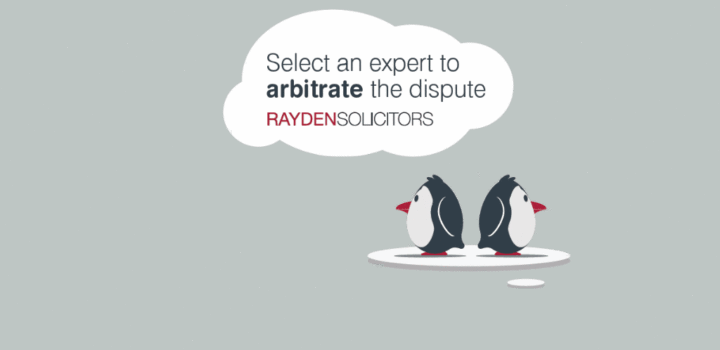

FAMILY LAW ARBITRATION SOLICITORS
What is family law arbitration?
Arbitration is an alternative to court where you choose a qualified specialist arbitrator to make a decision on your dispute. It is a relatively recent development in family law, but it is one that enables parties to deal with their dispute on their own terms and with a swift outcome. It is an ideal way forward when a dispute has become intractable and a binding decision needs to be made by a third party quickly and decisively.
Family arbitration has many advantages over traditional litigation. It offers greater choice, flexibility and control in comparison to the court process. You can tailor-make your arbitration so that it is personal to your case and so it can be a more satisfactory way to settle matters that have otherwise become unsolvable.
Thank you for the documents and your guidance throughout this process Julian. Honestly the arbitration was intense but this was because of the nature of the matter not the process itself. You have a calming persona which helped settle my nerves. Please could you pass my thanks to your team too, they were just as pleasant as yourself.
Arbitration participant
A bespoke process offering you greater control
If you choose family arbitration as a way of resolving your dispute, you and your ex-partner select the arbitrator, timescale and location for meetings, as well as which element(s) of your dispute you would like to resolve.
A solicitor-led family arbitration allows your needs and practicalities to take priority and avoids the formalities of a courtroom process and procedure. As you choose the “judge” for your case, you have complete assurance that your family arbitrator specialises exclusively in the area of family law you need and has the necessary expertise to understand all the nuances involved.
How long will family arbitration take?
In your initial meeting with the arbitrator, you are able to agree a timetable that suits you. This means that your dispute could be resolved within weeks (rather than the 18 months to 2 years which is typical in the court system).
The speed at which your dispute can be arbitrated will crucially offer you significant savings in cost and stress. The flexibility of choosing your timeframe and venues also gives you greater control.
The process is also considerably less formal. So the strain of having to attend court with the archaic language and formality is removed − again making it a more bespoke process for you.
The arbitrator’s decision, once made, is as binding as a High Court judge’s. Unlike court, the arbitrator will have plenty of time to prepare and will have read and understood the details in your case; he or she will be fully prepared. Unfortunately, the court cannot offer that level of care and most judges will have read nothing about your case, relying on barristers to help them understand the issues.
Family arbitration can also be used alongside the court process. If an issue has arisen along the way that needs to be determined, arbitration can deal with that discrete issue for you, enabling you to move forward with your litigation.
Arbitration is ideal where you have been in mediation but have not been able to agree some or all of the issues between you. So rather than having to start the process all over again in litigation, you can move to arbitration saving you time, stress and money.
Any aspect of the financial dispute between you can be dealt with through arbitration; from who keeps what possessions, to providing a resolution to your entire financial dispute.
Equally, in disputes about children, family law arbitration can resolve a particular point as a standalone issue (e.g. travel or holiday arrangements, schooling) or all the arrangements for the children, including where they live and the time they spend with each parent.
Julian Bremner, a partner of the firm, is a financial arbitrator and will be able to arbitrate financial disputes successfully. He has successfully run cases in arbitration and has sat as an arbitrator himself in financial disputes.
Emily Watson, also a partner of the firm, is a children arbitrator and will be able to arbitrate children disputes successfully for you.
Julian Bremner
Executive Partner Financial Arbitrator
Emily Watson
Executive Partner Children Arbitrator
What stages are involved in the family arbitration process?
The process is broken down into three broad stages:
Stage 1: Preparation
You choose your family arbitrator and agree whether you are going to use the process to resolve the whole dispute, or a discrete part of it. You can also choose where and when the meetings take place.
Stage 2: The family arbitration process
Your first meeting will be via a conference call. You can have your solicitors or barristers (or both) present if that is how you would like to proceed.
You will agree the timescales which would ideally suit you as well as determine what needs to be done by all parties to meet that timescale and present your case for arbitration. After this, you can choose whether to continue the process through face-to-face meetings (which can be as similar or dissimilar to the court process as you both would like) or by written communication.
Stage 3: Conclusion
There will then be a hearing of your case. This can be with all parties around a table, on the telephone or simply via paperwork. The arbitrator will be fully engaged in your case and make sure that the time is effectively used. Much like a decision made in court, the family arbitrator makes a final decision. Fees are settled and the family arbitrator puts the decision in writing, including written reasons and can also provide you with a draft order to be filed in court (if you do not have a solicitor to do so for you). The arbitration will be respected by the court and upon request made an Order of the Court within a matter of days.
Rayden Solicitors is committed to equality and diversity and in doing so supports and advises all members of our community.
Arbitration FAQs
What’s the difference between Arbitration and using a private FDR Judge?
There is quite a distinct difference between Arbitration and Private FDR (Financial Dispute Resolution). Private FDR is a without prejudice private process. Whilst the Private FDR Judge, hired by the parties, is doing their level best to help bring a resolution as to the case, they are not in a position, if that resolution does not happen through negotiation, to do anything about it.
Whereas, the Arbitrator does not hear without prejudice materials and views the case much like a Judge at a Final Hearing. At the end of the day, the Arbitrator will make a formal and binding determination on the parties.
This is why quite a lot of Arbitrations also include a Private FDR where the Arbitrator and Private FDR Judge are completely separate individuals.
Are solicitors and counsel involved during the Arbitration?
How the parties decide to run the Arbitration is a matter for them. Arbitration is ideal for both litigants in person (i.e. the party is not engaging the services of solicitor or counsel to assist with their case) and those who are represented. Our executive Partners and Arbitrators Julian Bremner (Financial Arbitrator) and Emily Watson (Children Arbitrator) have undertaken Arbitrations where there have been parties only (with their solicitors in the background) or parties with their solicitors, or parties with solicitors and Counsel. It is a purely individual decision as to how best to run their case and arguments.
Where would your Arbitration take place?
Where the Arbitration takes place is very much down to the parties. The Arbitration can be in person or can be online. If in person, then one of the parties’ solicitors may offer the three rooms required to host an Arbitration. If Counsel is also involved, Counsel’s Chambers may also offer an Arbitration suite or, alternatively, the parties can agree to hire an appropriate venue.
What is the average cost for a Children Arbitration and for a Finances Arbitration?
The cost for Arbitration – children or finances – tends to be in the region of £3,500 – £5,000 for a one day Arbitration with refreshers somewhere between £1,500 to £2,000.
For interlocutory steps these are generally charged at the Arbitrator’s hourly rate and depend on what steps are needed.
Most Arbitrators will hold a pre-commitment meeting with the parties for free.
The costs to the parties for their solicitors’ time is generally the same as for court.
If you would like to know more about arbitration, call us today
If you would like to arrange a first meeting or have any questions, please contact us or fill in the enquiry form below.
"*" indicates required fields













